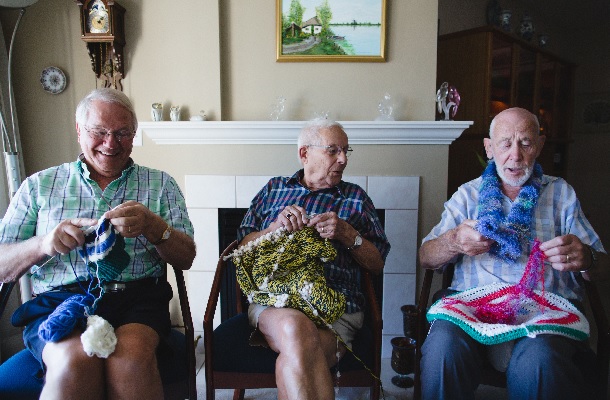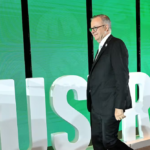Changing perspectives – testing an ageism intervention

Ageism is real problem in Australian society.
It is arguably the most pervasive form of prejudice and is widely tolerated, often going unremarked or even unnoticed. It is so deeply embedded in our societal norms and values that it can be difficult to recognise within ourselves and our surroundings. This is particularly true for ageism against older adults.
Hostile ageism is easiest to spot, as it involves openly aggressive attitudes and behaviours about age. But even well-intentioned (benevolent) ageism can be patronising and harmful, such as making decisions on behalf of older people, or the belief that older adults are all frail or vulnerable and need help regardless of their preferences.
These attitudes are often driven by sympathy and compassion, but the assumption that older adults are childlike and in need of constant guidance can be limiting and disempowering. And older individuals themselves may well come to believe the stereotype others hold about them.
What if there was a simple intervention that could help break down these attitudes?
Successful Interventions
In fact, our new report at the Australian Human Rights Commission supports the idea that ageism might be one of the easiest prejudices to shift. We surveyed aged care and community workers about their attitudes to age and ageing before and after doing an educational workshop, and the results were very encouraging.
The workers were already somewhat less ageist than the general population when we first surveyed them. So we were particularly pleased that levels of ageism dropped significantly further after a single 2.5-hour workshop which looked at age beliefs, busted some myths about older people and allowed participants to share experiences and brainstorm changes they could easily implement in their own workplace.
The results were unaffected by whether participants attended a face-to-face or an online workshop, which is good news for flexible delivery options.
Focus group discussions held a few weeks after the workshops revealed that participants had taken various actions based on their learnings, such as changing the way they interact with older adults, adopting new work practices or approaches, sharing the learnings with others, and calling out ageism in their workplace and community. Participants created a ripple effect when they talked about ageist beliefs to colleagues, clients and friends, so benefits continue to spread after the session.
And our follow-up testing three months later found that the changes had persisted. Responses about changes in behaviour revealed that the workshop served as a catalyst for positive changes in the vast majority of respondents’ thoughts and behaviour. For example:
- 90% reported rethinking the way they communicate with older adults
- 87% had discussed ageism with others
- 86% actively considered actions they could initiate to address ageist attitudes in their workplace
- 82% reconsidered their attitudes towards ageing
One thing to note – we were only considering benevolent (not hostile) ageism. Intentional, hostile ageism is differently motivated and requires more complex and tailored interventions.
We’re not saying that a single intervention is enough to make even well-intentioned ageist beliefs magically disappear. Ageism is rife throughout society and underpins many common behaviours.
But we are encouraged that a single intervention can do so much to start and sustain the process, with demonstrated benefits for workers and their older clients.
You can read the report here and if you’d like to find out more about the workshop and how it might work for your team, please email Joanna Maxwell.
Joanna Maxwell is an author, teacher, lawyer and policy adviser. She is Director of the Age Discrimination Team at the Australian Human Rights Commission.














